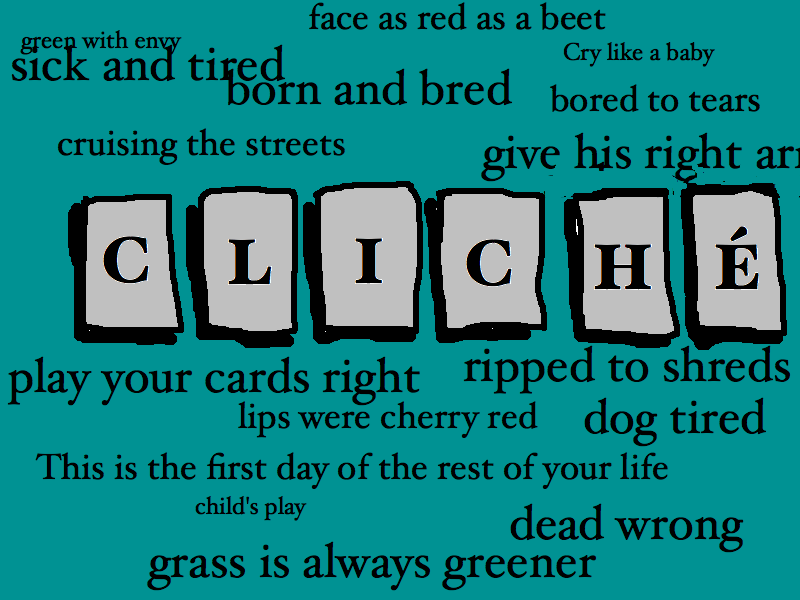Cliche
A cliche is defined as such:
cli·ché
noun
a phrase or expression that has been used so often that it is no longer original or interesting,
something that is so commonly used in books, stories, etc., that it is no longer effective as in a speech filled with clichés about “finding your way” and “keeping the faith”
 Clichés are a part of every language. A cliche often originates with a clever observation, which then becomes a popular way of describing something specific.
Clichés are a part of every language. A cliche often originates with a clever observation, which then becomes a popular way of describing something specific.
“The reason that clichés become clichés is that they are the hammers and screwdrivers in the toolbox of communication.” ― Terry Pratchett, Guards! Guards!
examples of cliche
Classic or well-used cliches:
In the nick of time – just in time
Lasted an eternity – when time passed by very slowly and something took much longer than anticipated.
Some recent examples of what a cliche is:
It’s not rocket science
The usual suspects
Serial offender
Hit the ground running
A perfect storm
Connect the dots
Drink the Kool-Aid
Reinvent the wheel
To cut a long story short
Of course, some of these phrases are fine to use if you just want to make a simple point and the cliche helps you make it. Used instead of your own take on something, they can be off-putting.
Cliches are not to be considered bad. A cliche only becomes a cliche because it is apt and describes something very well.
By using that old, worn cliche and other over-used figures of speech, okay, you don’t have to think too much, but this is at the risk of others considering you as unimaginative, inauthentic and just plain boring!!



















